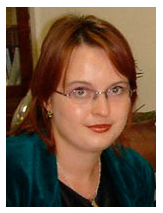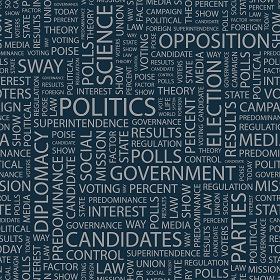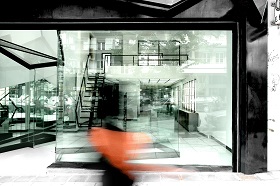A publication in an English-language scientific journal continues to be a sign of success which can promote the international recognition of any expert. Unfortunately, very few Russian experts and scientists can boast of even one English-language publication in scientific journals that are recognized world-wide. Nevertheless, there are some success stories: in 2015, Ekaterina Koldunova, PhD in Political Science, Associate Professor at the Department of Oriental Studies at MGIMO University and RIAC expert, published an article in International Relations, summarizing the work undertaken within the RIAC Global Science project.
A publication in an English-language scientific journal continues to be a sign of success which can promote the international recognition of any expert. However, Russian specialists in international affairs are faced with many difficulties in realizing this cherished dream, since such a successful publication requires great effort, perfect knowledge of academic English, and a thorough analysis of the issue under discussion. Unfortunately, very few Russian experts and scientists can boast of even one English-language publication in scientific journals that are recognized world-wide. Nevertheless, there are some success stories: in 2015, Ekaterina Koldunova, PhD in Political Science, Associate Professor at the Department of Oriental Studies at MGIMO University and RIAC expert, published an article in International Relations, summarizing the work undertaken within the RIAC Global Science project. The editorial staff of RIAC asked Ekaterina to share her insights on the work she completed to shed light on the difficulties she faced in the editing process, as well as to offer advice to those who are just beginning the path towards this time-consuming goal.
What difficulties did you encounter in the process of publishing your article?
The idea of publishing an article in an English-language journal that is recognized by the international community occurred to me for the first time, when I learned about the Global Science project launched by the Russian International Affairs Council. Before that, writing an article in English for a foreign academic journal seemed to be a very complicated and serious task that required not only lots of work, but also the expertise and know-how (not just the ability to express ideas in a foreign language, but knowledge of the rules of English academic jargon, a good command of academic English and of the peculiarities of the publication process in the Anglo-Saxon countries), which, by and large, neither I nor many of my colleagues had.
By that time, I already had some experience in publishing collective monographs in English, but the work on the article required much more effort, in particular, when choosing the journal for publication, preparing an sufficiently strong text in terms of both form and content, presenting it in accordance with the requirements of the journal, and, among other things, finding the right angle of presentation that would allow to place my study not only in the domestic research context, but in the international one as well.
Another difficulty that I faced was the following: our participation in certain conferences abroad notwithstanding, we nevertheless remain essentially isolated from the international research community in the social sciences and humanities. For example, while working on this article, I realized that a number of my foreign colleagues had offered of their articles for discussion not at one but often more than at two international conferences before publication. Many texts undergo many presentations and revisions before they are submitted to the journal and a publication of qualitative research is not just the authors’ personal affair, but a priority for all universities that lay claims to leading positions in world rankings.
What made you choose this particular journal?
While working on the Global Science project, I chose a journal to publish my article, and following the latter’s revision based on comments received from an anonymous reader, the article was accepted for publication. However, over the past six months, the article has still not been published (my foreign colleagues say that such a long waiting period is not unusual and can last even longer).
Alongside this, I managed to take part in a seminar abroad, and its participants decided to prepare a joint publication on the results of our discussions. At first, we thought of producing a joint monograph, but over the course of the discussion, the majority opinion was in favor of publishing the results of our work in an academic journal. The renowned British journal International Relations agreed to publish a special issue on the results of our work. Thus, in the latter case, the choice of the journal was a collective decision, taken on the basis of my foreign colleagues’ experience.
I would like to say a special thanks to all my colleagues who participated in the preparation of this special issue and, in particular, to its editors Mark Bevir, Professor of University of California, Berkeley, and Assistant Professor at University of Chichester Oliver Daddow for their valuable comments and support during the work on the article.
How did you define the main subject of the article?
I determined the main subject of the published article taking into consideration the subject-matter of the scientific seminar. It also had to clearly communicate novelty and my contribution. It should be understood that, given the fierce competition among academic researchers in the field of international relations, finding a topic that is of interest to colleagues and publishers is quite a challenge.
Did you have to revise or to finalize the article in accordance with the editors’ comments?
The article was substantially revised twice, not counting thorough page by page revisions (I repeat: page by page) at all stages of the text preparation: from revising the text on the basis of the comments made back at the seminar to reading the proofs. It seems that virtually every sentence was appraised in terms of its apprehensibility and of overall fit into the overall fabric of the text.
Did the editor change the text of the article much?
Changing the article is not the editor’s task. It is the author’s job to revise the article in accordance with the comments of the anonymous reviewers. Frankly speaking, after two processes of submitting articles to academic journals, I find it hard to calmly accept reviewers’ comments. In the first case, it took me almost a year to gain the courage and to contemplate again in real earnest the text that had already been written (if only because revising the finished text requires, in my opinion, even more effort, concentration, tranquility, and immersion in academic work, than the initial drafting of the text). In the second case, it took a month of a pretty hard work. I was better prepared for the fact that the text should be subject to a detailed analysis, all unnecessary things should be mercilessly removed, while many of the wordings should be paraphrased, paraphrased and paraphrased again.
If we compare the final version of the article with the initial one, to say that they differ “essentially” would be as much as to say nothing.
Did you follow certain rules of academic writing, while preparing the article? If so, what were they?
I carefully analyzed the style of the journal, as well as the way it structures published texts, annotations, and the biographies of the authors. Explaining in detail the novel aspects that my personal research adds to the already existing works was, of course, a separate challenge.
Do you find it more interesting to write for Russian-language or English-language journals?
The former and the latter certainly deserve attention and have their own audiences. In the latter case, the audience is, of course, larger and more international. I can say only this: preparing articles and publications for quality Russian-language and English-language journals is an important step in professional development.
Are you planning to publish articles in foreign outlets in the future? If yes, in what exactly?
Of course, professional development demands further publications. However, these publications, in turn, require a considerable part of professional and personal time, which in our case is not always available, but I will do my best.
Prepared for publication by Maria Gurova, RIAC Website Editor






